America Ranks the Most Toxic Social Media Apps
Social media allows people to share their lives online, but it also provides an outlet for negativity. Which platform did Americans rank the most toxic?
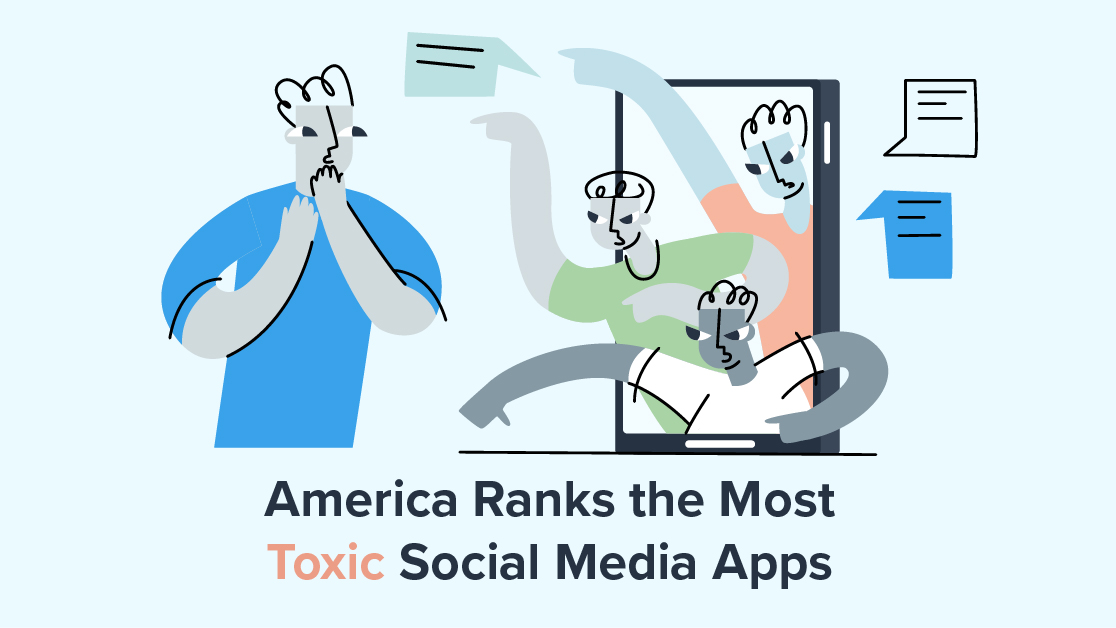
Social media allows people to share their lives online, but it also provides an outlet for negativity. Which platform did Americans rank the most toxic?

We all know someone who’s quit Facebook, Instagram, or Snapchat—maybe that certain someone is you. There’s no doubt we’ve all contemplated it at one point.
Whether social media is toxic or not has been an ongoing debate since the creation of Myspace in 2003. We know for a solid fact that the platforms have overwhelmed our lives to a somewhat unhealthy extent.
Some indulge in the media for entertainment, keeping up with friends and loved ones, or education, while others visit to pick a fight or “troll.”
And let’s face it––specific social media channels like Twitter, YouTube, and Reddit are not for the faint of heart. But which is the most toxic?
From removing likes and dislikes to troll-like comments to seeking validation on social media, read on to discover America’s social media pet peeves.
In March 2022, SimpleTexting surveyed 1,018 social media users across the United States from ages 18 to 75. We surveyed a representative sample across various demographics to analyze insights by gender and generation.
Our goal was to uncover which social media apps Americans deem most and least toxic due to cyberbullying, hate speech, misinformation, and more.
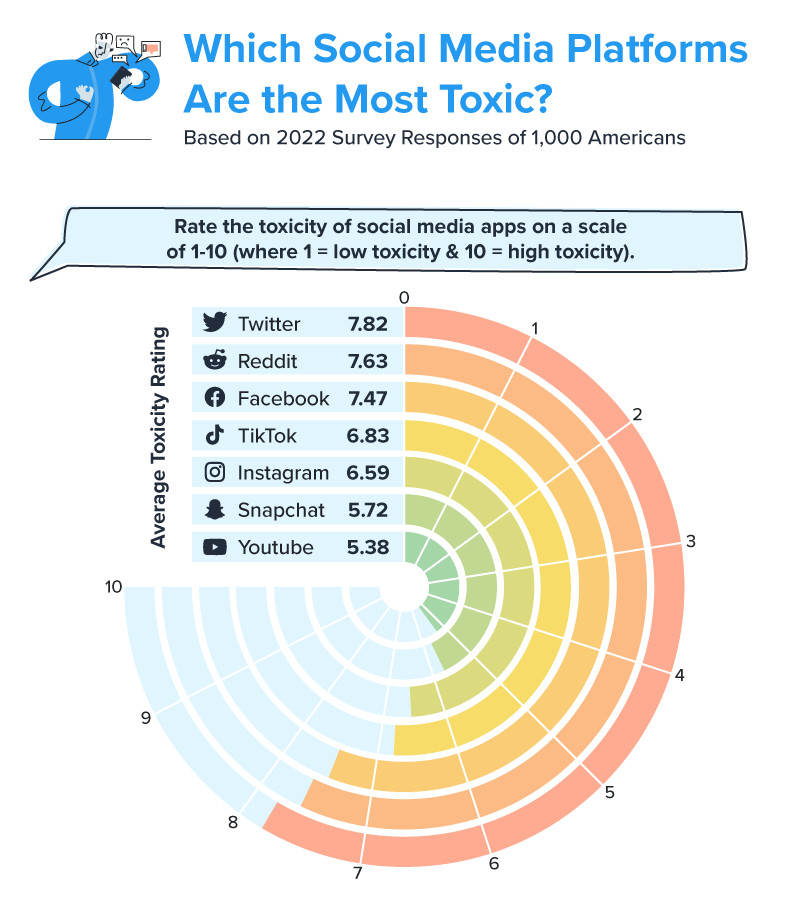
First, we asked respondents to rate the toxicity of seven social media apps on a scale of 1 to 10 (where 1 indicates low toxicity and 10 indicates high toxicity).
Considering Twitter is the first place trolls run to share divisive memes or cancellation trends, we’re not surprised its average toxicity rating is the highest at 7.82.
It’s a space where users can speak their minds—as long as it’s within 280 characters.
Because of limited space, it’s easy for messages to get lost in translation, meaning troll-like commentary abounds!
Reddit allows users to post anonymously with minimal consequences. Being anonymous on the internet brings out the worst in people, which explains why Reddit was voted the second most toxic app with an average toxicity rating of 7.63.
Facebook, knocked in recent years for sowing discord and spreading misinformation, was voted the third most toxic app with an average rating of 7.63.
Social media platforms like TikTok, Instagram, and Snapchat ranked lower on the toxicity scale, and YouTube had the lowest toxicity rating of the bunch, averaging 5.38.
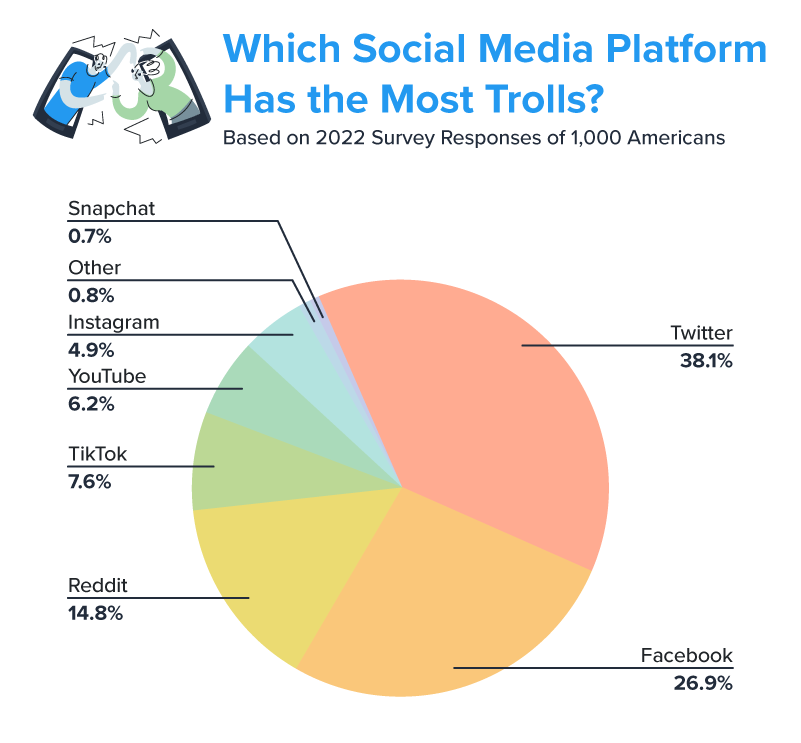
Trolls are like mythical beasts lurking on social media apps. They scour comment sections and newsfeeds, plaguing them with negativity.
Before today’s social media platforms existed, you could find trolls in forums or message boards. No matter the topic, you’ll be able to spot them.
Infested with these cyber creatures, Twitter was named the app with the most trolls by 38% of respondents. Facebook and Reddit switched places.
Although Reddit was ranked second in toxicity, Facebook has more trolls, according to survey respondents. TikTok, Youtube, Snapchat, and other social media platforms are not as troll-inhabited.
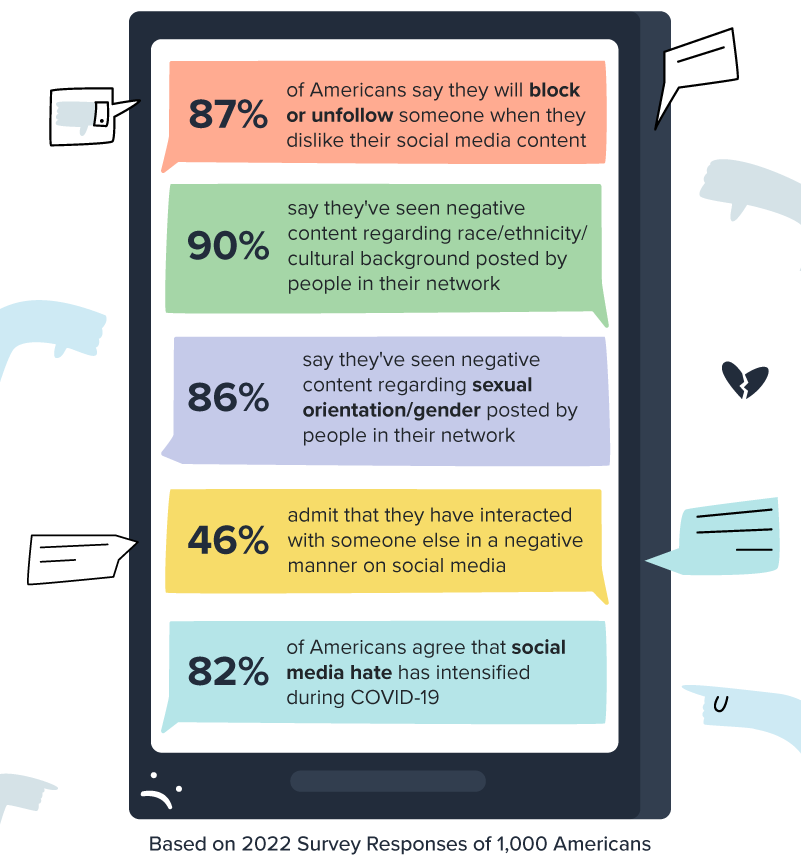
Current events, like elections or award shows, are commonly discussed on social media. To put it simply, most of the content is less than civil.
90% of respondents say they’ve seen harmful content regarding race, ethnicity, and cultural background on various social media platforms.
Meanwhile, 86% say they’ve seen negative content regarding sexual orientation and gender posted by people in their network.
Social media apps have always been a space for judgment, but 82% of Americans believe social media hate intensified during the pandemic, which makes sense given that Americans’ screen time unsurprisingly increased during COVID-19.
During quarantine, millions turned to social media in lieu of in-person socialization.
87% of Americans say they’ll block or unfollow someone if they dislike their social media content. While 46% admit to interacting with someone in a negative manner online.
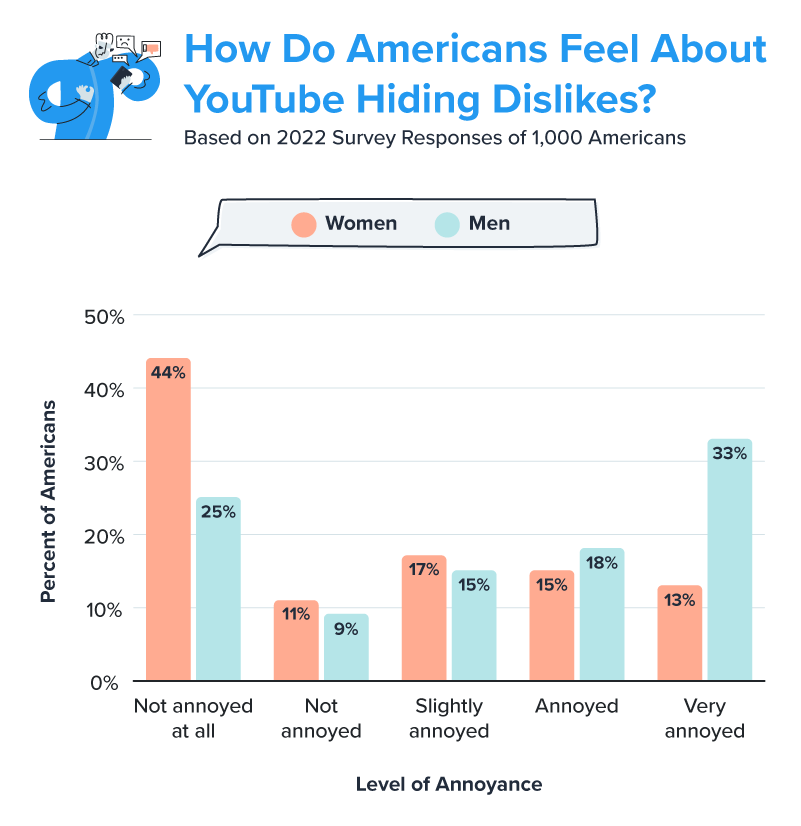
In November 2021, Youtube removed the visibility of the public dislike count from all videos.
No matter how or where you’re watching Youtube content, viewers can only see how many likes the video received. The purpose of hiding dislikes was to reduce online hate.
Women favored the controversial change more, with 44% saying it didn’t annoy them, whereas 33% of men were very annoyed.
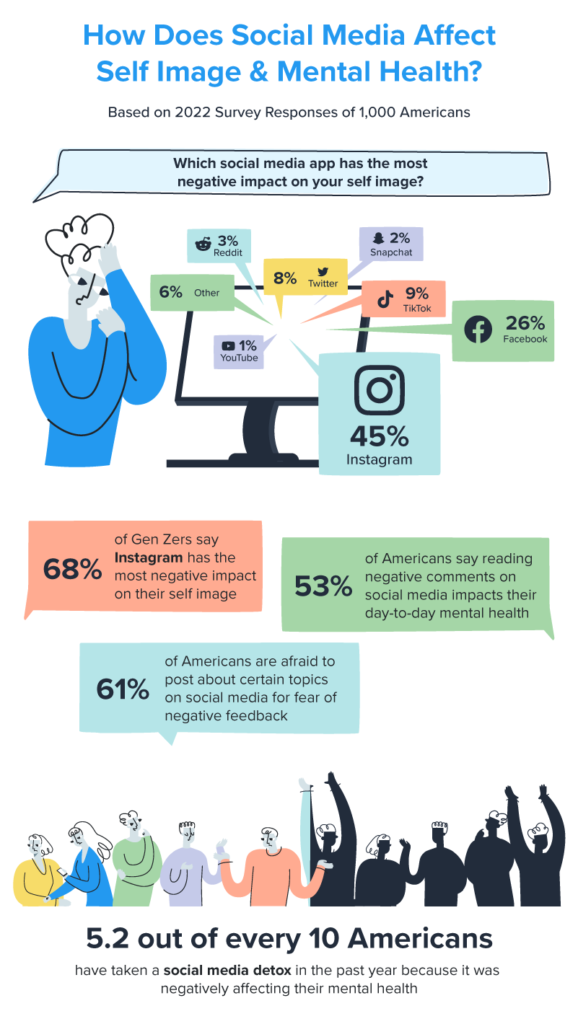
Admit it, we’ve all lost sleep due to endlessly scrolling through social media. But excessive use of social media apps can take a toll on your mental health by fueling anxiety, self-doubt, fear of missing out, and more.
61% of respondents are scared to post about certain topics for fear of backlash by people in their network. Another 53% say reading toxic comments on social media affects their day-to-day mental health.
Photosharing apps can contribute to self-image issues. 68% of Gen Zers say Instagram has the most negative impact on their mental health. 45% of all respondents agree.
Social media can quickly become a black hole, draining your time and energy—that’s why unplugging is essential.
5.2 out of every 10 Americans have taken a social media detox in the past year because it negatively affected their mental health.
Social media has toxic elements, but it doesn’t have to be all bad. There are plenty of positive aspects of social media apps not tainted with toxicity—and they can be combined with SMS marketing to build stronger, faster connections with your followers.
Lily is a content marketing specialist at SimpleTexting. She specializes in making helpful, entertaining video content and writing blogs that help businesses take advantage of all that texting has to offer. When she’s not writing or making TikToks, you can find Lily at roller derby practice or in a yoga studio in the Seattle area.
More Posts from Lily NortonWant to see your wellness business thrive? Take these tips and templates to make your wellness marketing more effective than ever.
ReadUse these sales promotion examples and a bespoke promotional offer formula to boost engagement and drive more sales from your audience.
ReadStart a text marketing campaign or have a 1-on-1 conversation today. It's risk free. Sign up for a free 14-day trial today to see SimpleTexting in action.
No credit card required